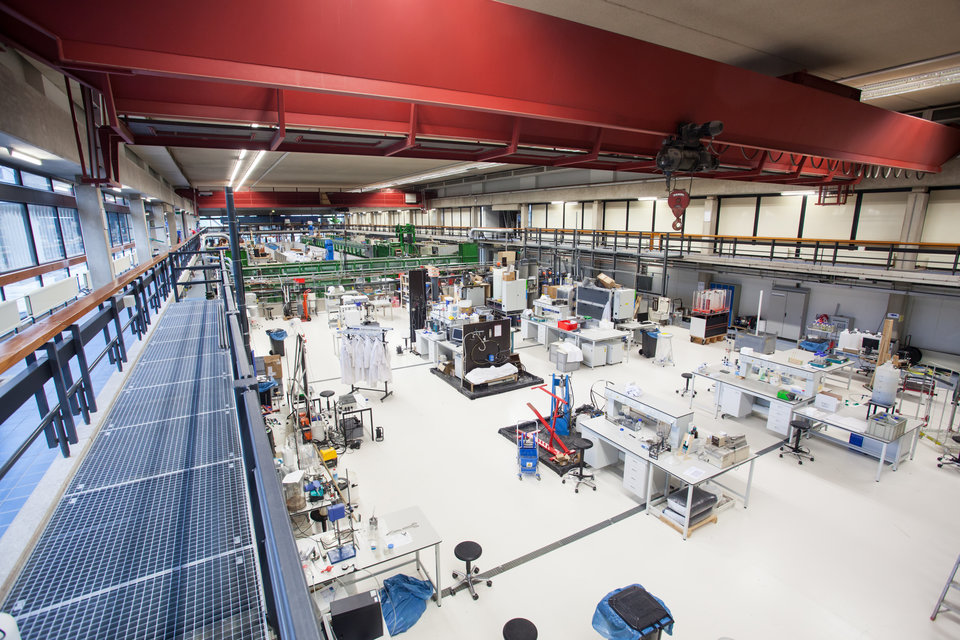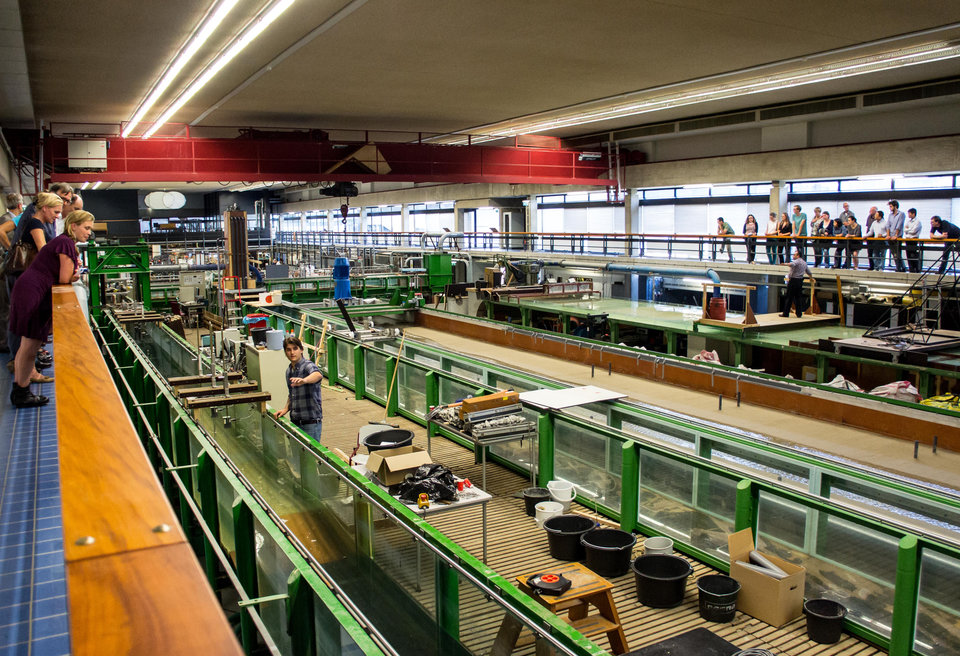The WaterLab
The WaterLab enables research aimed at fundamental understanding of the behaviour of water systems and technologies in a changing world, covering the domains of Water Management and Hydraulic Engineering. Climate change and sustainable development call for new ways to ensure protection against flooding and safeguard sufficient and healthy water. The WaterLab allows to study water systems from laboratory scale to field labs, to grasp the full complexity of real-world water systems based on thorough understanding of the underlying processes. This serves as a basis for the development and validation of numerical models for the design and engineering of human interventions in these systems. The combination of science and engineering, and the broad range of water applications involved make these TU Delft facilities unique.
The Startup Science Tour through the Waterlab (in Dutch)
A key element for advanced water related research is to have a centralized location that can host a broad range of research disciplines as well as cross-disciplinary research. The WaterLab consists of two part, the Water Management Lab, and the Hydraulic Engineering Lab, both located in the Stevin III building at the Civil Engineering and Geosciences faculty of TU Delft.
The Water Management lab
The Water Management Lab focuses on two main research topics: sanitary and environmental engineering and water resources management. There is a wide variety of research instruments available for both lab and field labs with which almost every parameter related to the water cycle can be measured in a controlled, isolated environment (see website). For both topics, the indoor Water Management Lab is important for experimental and bench-scaled testing before it can be scaled up to pilot scale in e.g. WaterStreet or Harnaschpolder wastewater treatment plant.
The Hydraulic Engineering Lab
The Hydraulic Engineering Lab enables research on water systems, focussing on the design, assessment and impact of human interventions. The indoor lab has many state-of-the art small-scale research facilities. Next to these lab-scale experiments the lab is the home base for the deployment of instruments for field campaigns for sites like the on-campus field lab Flood Proof Holland and the Sand Engine Delfland, a man-made dynamic peninsula on the Dutch Coast.


